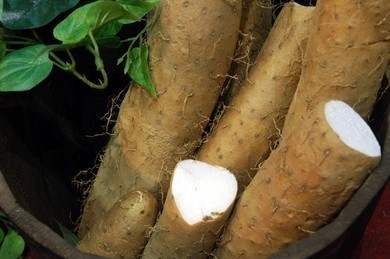Dioscorea Plants Tissue Culture

Dioscorea belongs to the family Dioscoreaceae, a perennial vine, with about 650 species, distributed in tropical, subtropical, and warm temperate regions around the world, especially the most species in tropical America, intermittently distributed around the world.
Diosgenin contained in the rhizomes of Dioscorea plants is an important raw material for the synthesis of steroid hormone drugs, and is currently an important raw material for the synthesis of hormones for medicinal use, with extremely strong anti-infective, anti-allergic, anti-viral, and anti-shock important pharmacological effects. In addition, the rhizomes of many species of this genus can be used for food and brewing, and have great development value.
Tissue culture service
Conventional propagation of Dioscorea plants is carried out asexually by rootstock outgrowth, which requires the occupation of a large number of stem blocks, thus leading to an increased conflict between cultivated and industrial production, as well as high costs, and more importantly, asexual propagation can cause degradation of germplasm resources.
The tissue culture technology method provided by Lifeasible is a novel way to expand the production propagation of Dioscorea plants, which is also asexual. Unlike rhizome propagation, the tissue (explants) of tissue culture plants can be taken from the young above-ground parts, avoiding the carrying of soil-borne pests and diseases, and is less restricted by climatic factors and faster propagation.
- Dioscorea zingiberensis C. H. Wright
- Dioscorea alata
- Dioscorea deltoideaWall.
- Dioscorea forabunda
- Dioscorea composita
- Dioscorea batatas
- Dioscorea japonica
- Dioscoreasylvatica
- Dioscorea Bulbifera
Dioscorea plants are mostly harvested from their roots, stems, leaves, and other organs, and most of them produce medicinal herbs through nutritional propagation, while polyploid plants, due to doubled chromosomes, tend to have huge sex of roots, stems, and leaves, which can better meet the needs of medicinal herb production. On the other hand, changes in plant chromosome ploidy also tend to lead to changes in the content of secondary metabolites, which makes it possible to obtain new varieties of medicinal plants with higher content of active ingredients. Based on the above, Lifeasible has established a rapid propagation system for Dioscorea plants using tissue culture technology to obtain the best propagation method for this genus, which can meet the needs of Dioscorea plant introduction and breeding, variety improvement, and expansion of production.
You want to sign a confidentiality agreement.
You have a specific plant species for your experimental needs.
You have a reliable and relevant cooperation project to discuss.
You are very interested in our project or have any questions.
You need an updated and detailed quotation.
For research or industrial use.



